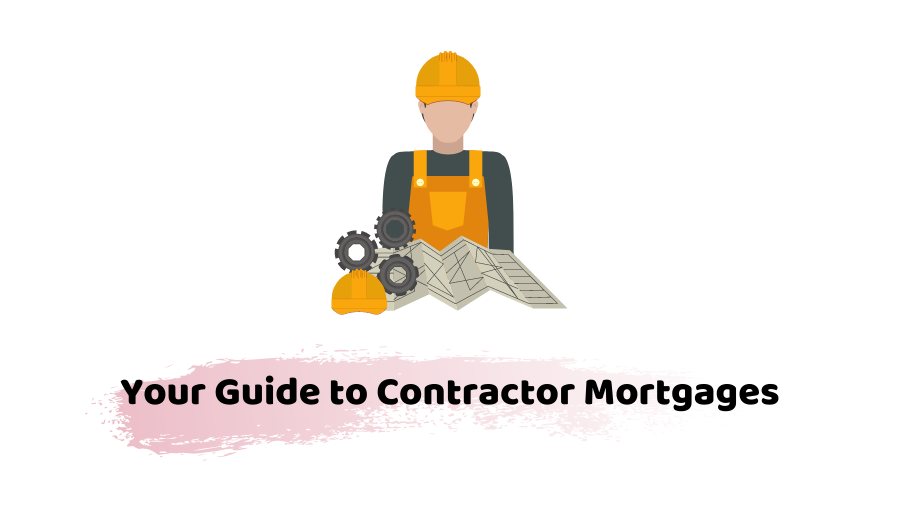Buying a property outright can be difficult for many people as most of them can’t afford to pay the lump sum. Along with employees and small business owners, contractors are also unable to pay the large sum to purchase a property outright due to their unstable income. Therefore, purchasing a property on mortgages can be a great option. You might think that getting Mortgages for Contractor can be a hassle.
However, obtaining mortgages as a contractor has become easier and this career has been recognized by the banks and other lending bodies. Yet, most contractors still find it difficult to obtain mortgages due to the complexities.
In this blog post, we’ll try to resolve those complexities to get Mortgages for Contractor.
Overcome your financial worries with Accotax.
Different Types of Mortgages:
Before applying to any mortgage, you must make sure that what sort of mortgage is suitable for your circumstances. There’re several mortgages, here is the list of the most common mortgages:
1) Repayment Mortgage:
In this type of mortgage, you’ll be repaying the amount, with interest, you have taken from the lender in installments.
2) Interest-Only Mortgage:
In this, you don’t make repayments for your borrowed amount rather you pay interest on a monthly basis that is due on the amount you borrowed.
3) Fixed-Rate Mortgage:
Here the amount of your borrowed money will have a fixed interest rate for a certain period.
4) Standard Variable-rate Mortgage:
Here a normal interest rate is charged by the mortgage lender.
5) Discount Mortgage:
Here a discount is given on the SVR. The amount of your interest may change based on SVR changes by the lender.
6) Tracker Mortgage:
In this mortgage, your interest rate is linked to an external rate. This rate is based on the rate of the Bank of England. The amount you repay may change based on the external rate.
7) Capped Mortgage:
In this mortgage, the interest rate is capped which means your repayment can’t go above a certain amount. Here the interest rate is higher than the tracker mortgage.
8) CashBack Mortgage:
You get a certain amount from your lender after finalizing the percentage of the amount borrowed. It can be from 1% to 7%. This mortgage is useful for buying property, but there are restrictions for the early repayment of mortgages.
9) Flexible Mortgage:
This mortgage allows you to overpay or underpay and to make a payment holiday by not paying the mortgage for any month. It is best for people who want to have control of their repayments. But this flexibility can offset a higher interest rate.
10) Offset Mortgage:
It allows you to balance your savings against the interest that you pay. In this type, you need to connect a savings account to your mortgage to pay the interest.
Pondering which mortgage type to choose! Talk to our mortgage experts to get an insight!
The Amount of Money you can Borrow:
After finding a suitable home, you need to contact the mortgage authority. Remember before getting a mortgage, the lender will do an affordability assessment to decide whether you’ll be able to repay the amount you borrowed. The mortgage authority will check your income, expenses, and income security.
The lender will do a stress test to know how you’ll repay the money if your circumstances change. After having a deep check of your finances, the lending body will decide the amount of money to provide you.
Calculating Salary of a Contractor:
The salary of a contractor is not similar to the salary of an employed person. Therefore, mortgage lenders use different methods to calculate it. One of the common methods to calculate the salary is by calculating the average salary:
Suppose if your annual earning in 2018 is £50,000, in 2019 you have earned £52,500 and you’re earning in 2020 is £55,000, your average annual income will be £52,500.
The lender may not use this method if your annual income has got a great difference in recent years. Often, the lender will use your most recent year’s income to lend you accordingly.
Required Documents:
As a contractor, you need to provide evidence of your income through documents. These are the documents that lenders normally ask for:
- 2 to 3 years of certified accounts by a qualified accountant.
- SA302 form as evidence of your earning and 2 3 years of tax reviews from HMRC
- Copies of upcoming contracts
- Proof of dividends and retained profit
Contact our qualified accountants to maintain your accounts!
Although for new contractors, it’d be a bit difficult to get a mortgage due to the minimal opportunities, it’s not impossible.
Moreover, to prove your identity, you need to provide the following documents:
- Passport
- Latest Utility Bills
- Latest Bank statement
- Council Tax bill
Pro Tips for getting a Mortgage:
You need to be well organized and prepared for getting a mortgage. It includes maintaining your finances and documents to get your mortgage approved. We have brought these pro tips for you to make the process easier:
- Get help from a mortgage broker or IFA
- Be honest
- Keep a good record of credit
- Have clear and accurate records
- Manage your personal expense
- Keep a large deposit
Quick Sum Up:
We hope that our guide on Mortgages for Contractor will help you to get your mortgage. If you’re looking for a mortgage contractor or a financial advisor, we’d connect you to the relevant professional who is aware of your needs.
If you have any queries, Accotax is always here for your assistance. Reach out to us now!
Disclaimer: This blog post provides general information on contractor mortgages.























































